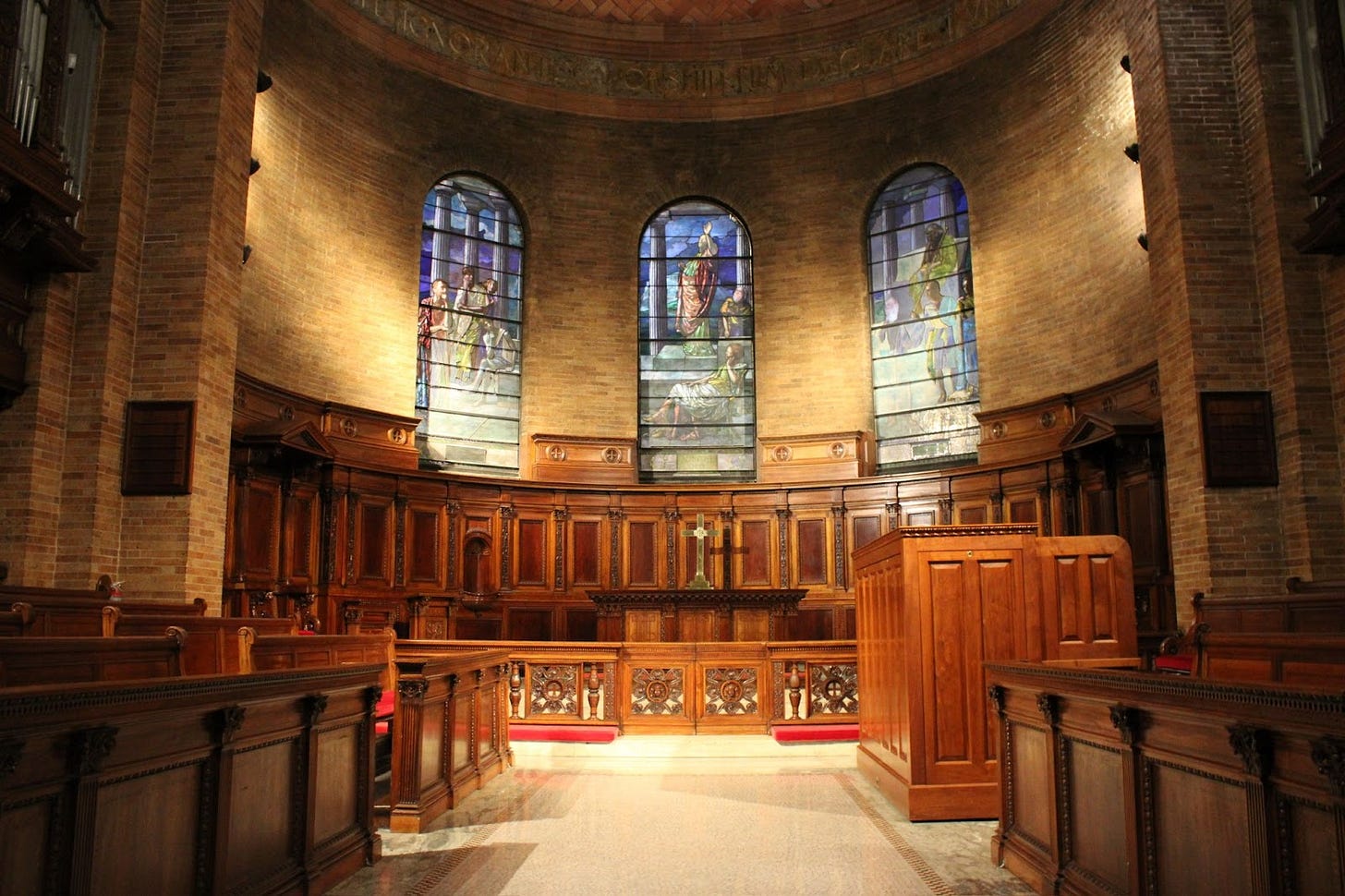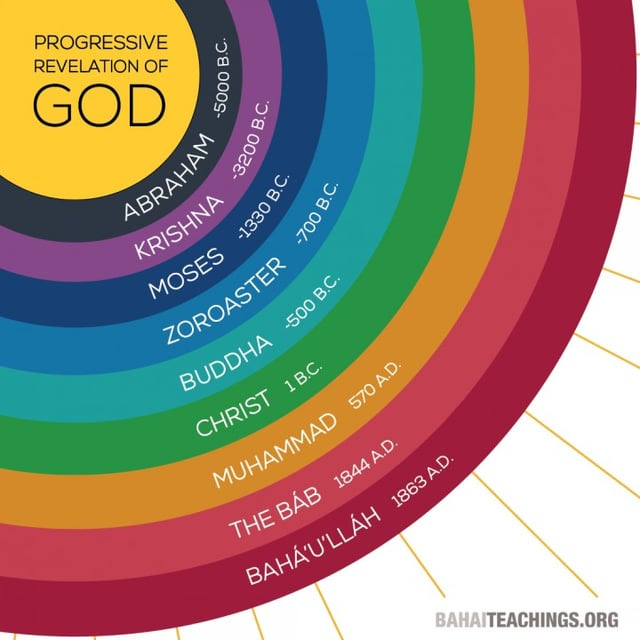Unlearning Careerism Through Religion
How religious exploration and the Baha’i faith helped me find purpose.
What drives the people around you?
Earlier this fall, I briefly spoke with an acquaintance who I had scarcely seen since my freshman year. As we spoke, she communicated her apathy towards academics after having received a return offer from a financial firm, adding that past relationships, platonic and otherwise, would soon envy her driving around in a Jeep. To my dismay, she added a cringe sound effect of a car honking as she laughed.
Compared to her freshman self, she seemed jaded and burnt out. Hearing my own old, poorly aged sentiments about college and career from a classmate shocked me—during my gap semester during the Spring of 2023, I had forgotten about this flavor of our campus culture.
Admittedly, during my first two years of college, I had a similar mindset, finding supreme fulfillment in the prospect of having a lucrative career. I hoped to become a surgeon or an investment banker and to live a luxurious life on the Upper East Side.
This shallow fixation, combined with the monotonous motions of school and life, had devolved my younger self into a husk. I also found that many of my relationships didn’t align with my values and were formed due to proximity. I was not alone—this instability and uncertainty is a shared conundrum for many students.
Many students “checkbox” their way through high school—get good grades, play a sport, do interesting extracurriculars, and take on a leadership role—to get into their dream schools. Just as college is the light at the end of the tunnel that is high school, a prestigious job or graduate school admission letter is the light at the end of the college tunnel. For high-achieving students, it is extremely easy to form this habit and abandon perspective.
Recognizing my less desirable qualities and inauthentic motivations, I took a semester off to escape the pressures of the Columbia bubble and attempt to learn what made me truly happy.
Just before my gap semester, I became aware of a lesser-known religion called the Baha’i faith, founded in mid-19th century Iran. Milling about the 2023 activities fair, I noticed a table with a “Baha’i Club” sign, behind which a classmate of mine (and now close friend), Hooper Markert, CC ’25, was standing. I vaguely remembered him from NSOP, and we reintroduced ourselves.
Stooping over the assortment of handouts on the table, a diagram of religious figures’ names emanating from a rainbow caught my eye. Hooper succinctly explained the Baha’i concept of the unity of religion: Baha’is respect the validity of all faiths and believe that the teachings of all prophets (Abraham, Jesus, Muhammad, Krishna, Buddha, etc.) offer the same underlying principles and are sent by the same God.
I attended several Baha’i club meetings, also known as devotionals, which include prayers, meditation, and discussion. The modern, forward-facing perspective of the Baha’i faith fascinated me—at my first devotional, for instance, we discussed the necessary coexistence of science and religion. I also learned about the Baha’i principle of the independent investigation of the truth: we must seek knowledge with intentionality and through independent exploration, as opposed to through the eyes of others.
To me, this was akin to radical open-mindedness, a life philosophy I have long believed in. As I attended Baha’i events in California during my gap semester, I found that many of my core beliefs aligned with those of the faith, and that the faith guided me away from my bad habits. As a result, I eventually declared myself a Baha’i.
Since entering the Baha’i world, I have sought to assemble a career that places truth-seeking, open-mindedness, and service at the center of my life. I have been influenced by the Baha’i faith’s belief in the importance of education and the use of career to advance humanity. In my own independent investigation of the faith and my career, I have begun to critically examine pre-professionalism, college life, and career choices. In stark contrast to my underclassman self, I now have confidence that God will provide a fulfilling life as long as I allow a sense of service towards humanity to guide my career.

My own journey has led me to hypothesize that the epidemic of shallow careerism has festered due to the absence of a guiding light for many students. For past generations, religion served as that guiding light— currently, 38 percent of 18-29 year old Americans are religiously unaffiliated, compared to less than 20 percent of Americans aged 50 and over. At Columbia, a majority of students either never attend religious services or attend less than once per year.
I used to fit into the “religiously unaffiliated” category. I was born into a Hindu family, but we did not partake in many Hindu practices. This led me to grow up with a negligible religious identity—I found religion ludicrous, and I identified as agnostic for years.
In retrospect, my agnosticism was both a blessing and a curse. On one hand, it helped me develop an inquisitive nature and taught me how to thoroughly question everything that was novel to me instead of naively accepting it. On the other hand, during difficult times my agnosticism meant that I lacked faith in any entity greater than myself. I had no community of shared philosophy with whom I could seek solace.
Now, I find that holding religion close amidst trials and tribulations is tremendously grounding, and I am grateful that my close-knit Baha’i community has assisted me endlessly.
Although I have become a Baha’i, I have continued to find fulfillment in religious exploration. During my gap semester, I read about and meditated upon the Indian monk Swami Vivekananda’s writings about two Hindu yogas, karma yoga and jnana yoga. Without going into excessive detail, these yogas taught me about detachment from results and rigorous self-inquiry, among other lessons. I also drew on the American priest James Martin’s “A Jesuit’s Guide to (Almost) Everything" for advice on finding vocation amidst life’s complexities.
Most recently, I have been learning about Judaism. During my first Shabbat dinner at Columbia’s Chabad house, I was amazed at the number of students crammed at dinner tables. Such experiences have affirmed my belief in the unity of religion—I have realized that the values of Judaism, especially the importance of community life, are not that different from those of the Baha’i faith and other religions.
Religious exploration has helped me define my career aspirations beyond the context of material trivialities. I seek a career that not only reflects Baha’i principles but also enables me to interact with people of varied religious and ethnic backgrounds. I hope to understand the lenses through which others perceive the world and, in the process, improve my own imperfect perceptions.
For those that feel stuck in myopic cycles of grades-getting and internship-seeking, I implore you to investigate the faiths and belief systems of those around you. A beautiful evolution will occur: Questions about your career will transform into more meaningful questions about your disposition, your relationships, and how you can pursue passions while also supporting your community.
Your answers to these new questions will likely quell your career anxieties in the long run. More importantly, your investigations will lead you toward greater intentionality, broader perspective, a stronger love for humanity, and an enduring, altruistic purpose that will guide you toward a fulfilling life and career.
Mr. Mallya is a junior at Columbia College majoring in applied mathematics. He is a staff editor for Sundial.





Loved the article!
Thank you for sharing your journey with us! Incredible story with an incredible message